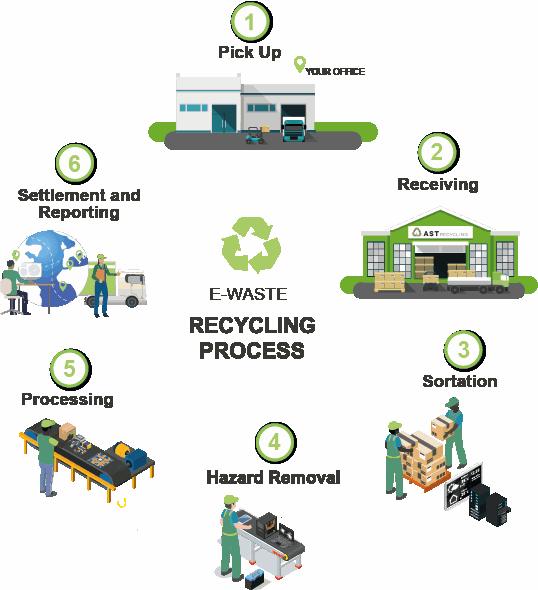
2 minute read
Solutions to the growing problem of e-waste
from ReSource May 2022
by 3S Media
E-waste is problematic largely due to the toxicity of some of the substances that make up the components of various devices, which, if handled and discarded improperly, can cause significant pollution and environmental degradation.
eople have always preferred
Advertisement
Pto live in clean conditions; as far back as 500 BC, we have evidence of laws from Greece concerning where garbage can be disposed of. They realised that dumping waste and improper incineration of solid waste were putting public health at risk and increasing pollution.
“Fast-forward to the modern day, and our disposal needs are no longer ash from people’s cooking fires and horse manure, but rather ever-increasing numbers of new kinds of hazardous wastes, including e-waste, which is considered by the World Economic Forum to be the fastest growing waste stream in the world, with an estimate of 48.5 million tonnes of waste in 2018,” says Ryan van Heerden, national manager: On-site Services, EnviroServ Waste Management.
According to the e-Waste Association of South Africa, South Africa generates about 6.2 kg of e-waste per inhabitant annually and only 12% of that is recycled, despite the fact that e-waste can be a valuable source of secondary raw materials.
According to Van Heerden, examples of electronic waste include batteries, solar panels, TVs, Wi-Fi routers, computer monitors, printers, scanners, keyboards, mice, calculators, cellphones, radios and media players, as well as appliances like kettles, microwaves, toasters and fridges. “The incorrect disposal of e-waste has negative and permanent impacts on the health of human beings and the environment, which is why experienced recycling partners should be used.”
Chemicals contained in e-waste – such as lead, barium and lithium – can contaminate water sources with carcinogens, leading to serious health complications. Research into the reasons why South Africans do not recycle has cited a lack of awareness or knowledge about recycling, a lack of facilities and disinterest. Initiatives such as the Tokyo Olympics organisers using recycled electronics to make the 2020 Olympic medals are useful to raise awareness of the need for recycling.
“EnviroServ manages complex logistics on behalf of our clients, offering waste and e-waste services to assist South African companies with compliant asset disposal of all end-of-term IT and electronic equipment. We provide the necessary regulation compliance while recovering value for the goods. These services are aligned to EnviroServ’s values of looking after the environment and contributing to the circular economy by reusing and refurbishing where possible, while helping corporate South Africa reduce their risks and environmental cost,” Van Heerden says.
While South Africa has come a long way with recycling initiatives, there is still much work to be done. He concludes, “This is why we have increasingly sought out implementation-driven solutions to accommodate all types of waste streams, focusing efforts on supporting a move to a circular economy.”
SA Manufacturer of Recycling Equipment
Innovative Engineering to Reduce your Carbon Footprint
Lead by a team of engineers with Typical Recycling Equipment
extensive experience, R-tek designs Metal Recyclingand manufactures stationary and Tyre Recyclingmobile recycling equipment. E-Waste Recycling Custom-built equipment Plastics Recycling can also be designed Medical Waste Recycling and manufactured. Custom-built Equipment












